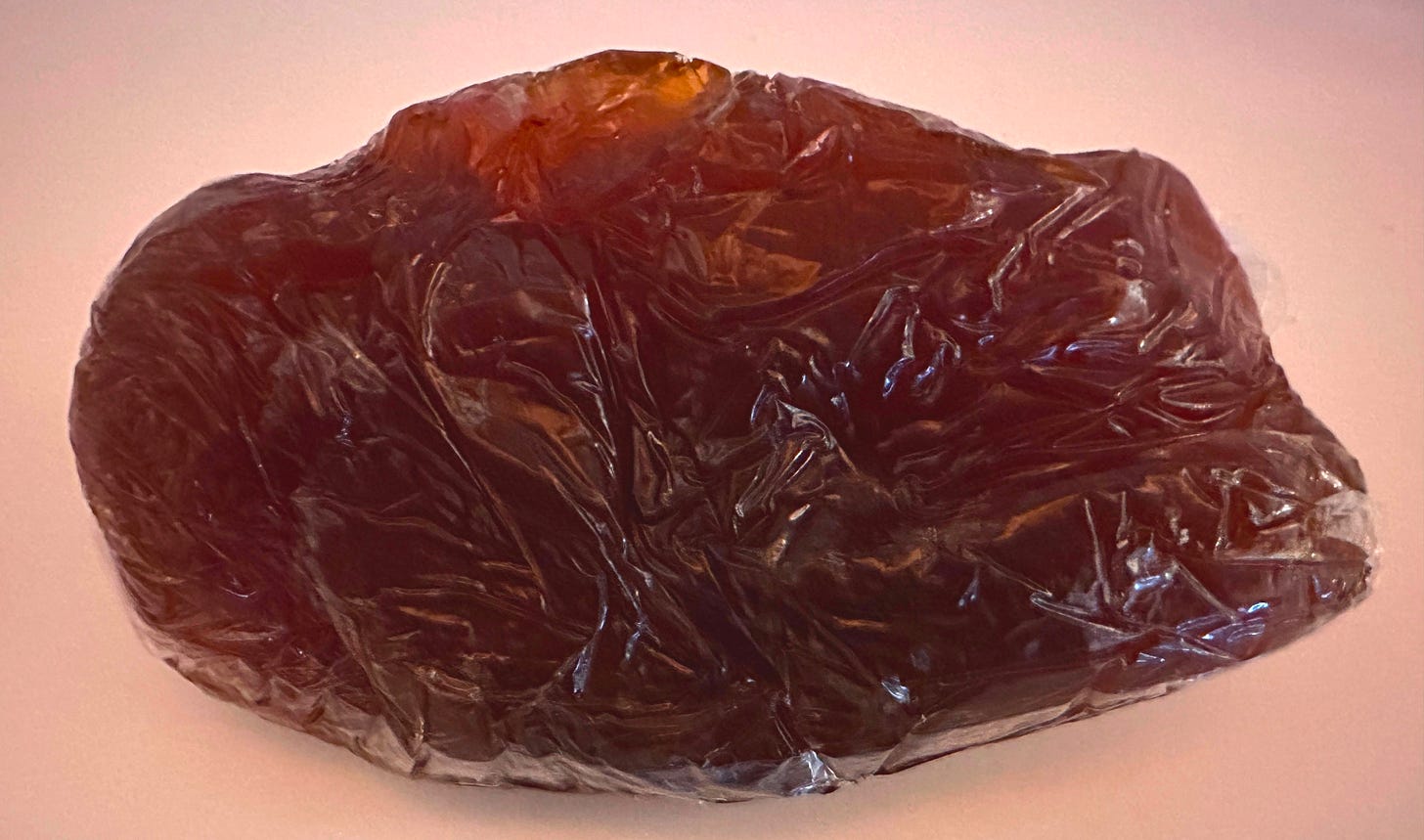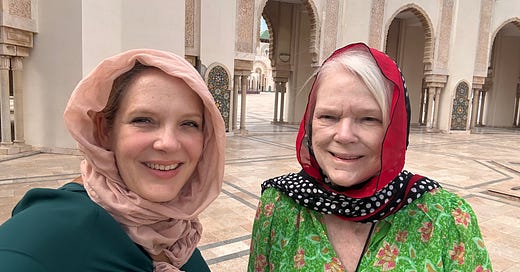Savon Noir: Black Soap from Morocco
Notes from my summer travels and encounters of the botanical sort.
Following our visit to the Canary Islands, the next stop was Casablanca, Morocco, located on the northwestern coast of Africa, not far from the Strait of Gibraltar. This was my first visit to Morocco, though I’ve collaborated with scientists who study plants in the Atlas Mountains. The Atlas Mountains are a treasure in plant diversity, boasting over 30,000 species, 13,000 of which are endemic (found only in this part of the world)!! Alas, our stop here was quite brief and we weren’t able to get outside of the city into the mountains. Still, within the winding alleys of the local market, there were botanical treasures waiting to be discovered.
Meandering through the market with our guide, we tasted many varieties of olives and other pickled vegetables. Morocco is actually the third leading country in olive production, following Spain and Italy. When fresh harvested, olives are extremely bitter (I learned this the hard way after plucking one off a tree in Italy many years ago)! To be prepared for consumption, olives are soaked in water for about a week or two with the water changed daily; this helps reduce the bitterness. Next, they are fermented in a brine solution (salt water), at which stage you may add herbs and spices for flavor. Then, they are cured in the brine from weeks to months, lasting in the brine for a year or more. I’ve always loved olives and was delighted to try many different varieties and preparation methods while in the market.
Being such a large producer of olives, it should come as no surprise then that Morocco also has a good production of olive oil. Olive oil is not only an important ingredient for the kitchen, but also for skin care. In Morocco, the local languages include Berber, French (from the colonial period), and Arabic. I was on the hunt for a very special olive-oil based product in the markets: Savon Noir (French) also known as "صابون اسود" (sābūn aswad) and "صابون بلدي" (sābūn baladī) in Arabic, translating to black soap or local soap. This soap is used in hammam (traditional bathing) rituals in hot steam rooms, often with a rough rag to exfoliate the skin.
It’s important not to confuse Moroccan black soap with African black soap, which is made from entirely different ingredients such as cocoa pod ash, shea butter, cocoa butter, and coconut oil.

A key distinction of Moroccan black soap is its soft, gel-like texture. It is primarily made from olive oil and macerated olives that have been saponified with potassium hydroxide, resulting in a highly alkaline soap. Traditionally, other botanicals are added, such as argan oil and aromatic essential oils from medicinal plants like eucalyptus, rosemary, and Mediterranean cypress. Locals often make this soap at home and incorporate it into their regular skincare routines. While I purchased an unlabeled version at the market, I also found it sold in local pharmacies in smaller containers—at nearly ten times the price.
I tried the soap in a hot, steamy shower using an exfoliating loofah and found that it left my skin glowing and well moisturized. The inclusion of argan oil likely contributes additional benefits, and it’s a plant I plan to explore further in a future post.
If you’ve tried either African or Moroccan black soap, let me know what you think of these! Share any comments or questions in the comments below.
Yours in health, Dr. Quave
Cassandra L. Quave, Ph.D. is a Guggenheim Fellow, CNN Champion for Change, Fellow of the National Academy of Inventors, recipient of The National Academies Award for Excellence in Science Communication, and award-winning author of The Plant Hunter. Her day job is as professor and herbarium director at Emory University School of Medicine, where she leads a group of research scientists studying medicinal plants to find new life-saving drugs from nature. She hosts the Foodie Pharmacology podcast and writes the Nature’s Pharmacy newsletter to share the science behind natural medicines. To support her effort, consider a paid or founding subscription to Nature’s Pharmacy or donation to her lab research.
The Plant Hunter is available in hardcover, paperback, audio, and e-book formats!








